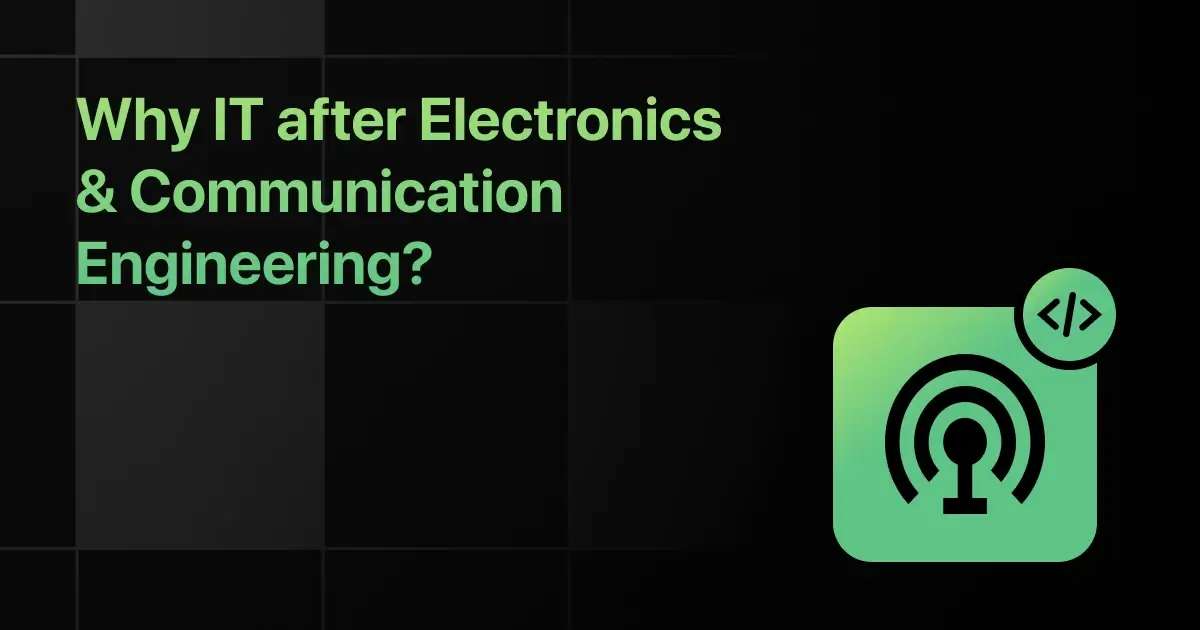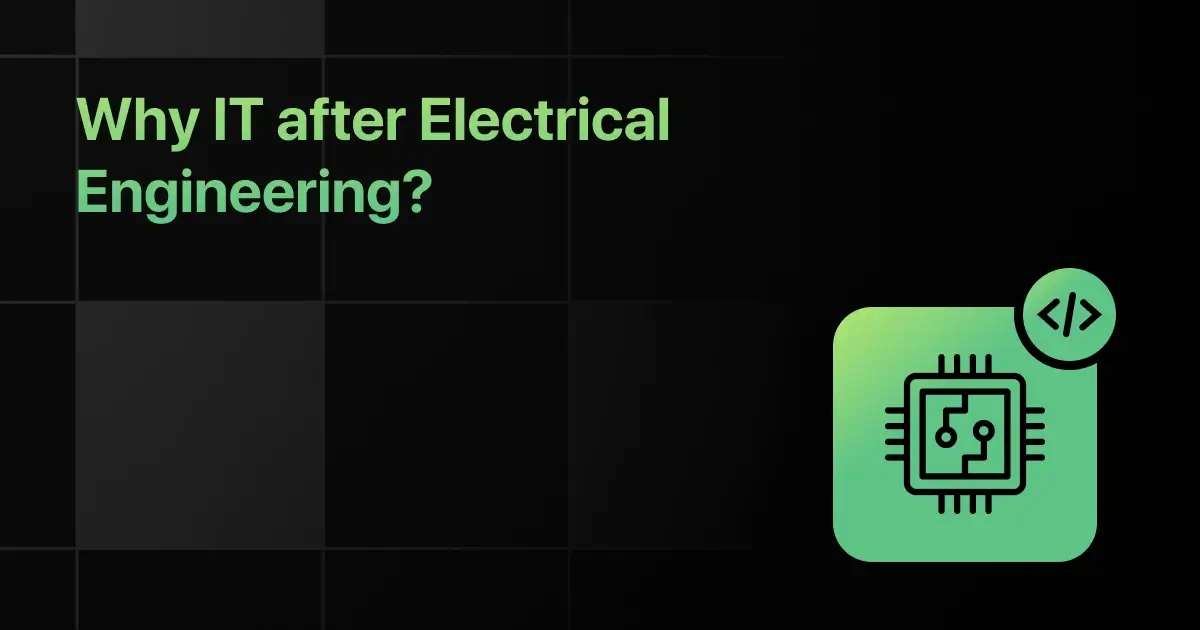How to Answer: Why IT After Electronics & Communication Engineering?

Moving from electronics and communication engineering to IT might feel like a surprise—after years of working with circuits, signals, and telecom, why switch gears?
It’s a question that comes up a lot: why trade a solid field like ECE for IT, and how do you explain it without stumbling in an interview?
In this blog, you’ll find the answer “Why IT after electronics and communication engineering?” that play up your strengths and make your move sound sharp and clear.
Best Ways to Answer: Why IT After Electronics & Communication Engineering?
Below are the best ways to answer: ‘Why IT After Electronics & Communication Engineering?’ in an interview:
1. How Electronics & Communication and IT Fit Together
ECE and IT aren’t far apart—think embedded systems, networking, or IoT. Your electronics skills help you understand hardware and signals, and IT lets you build on that with software and systems.
Template Version:
“I’m [Your Name], an ECE engineer who enjoyed [what you liked about ECE]. I moved to IT because I saw how [specific IT skill, e.g., coding/networking] could improve [specific ECE thing, e.g., circuits/devices].
My ECE experience helps me understand [hardware/signals], and IT lets me [what you want to do with IT].”
Logic Behind This?
This template links your ECE past to IT in an easy way. It shows you’re growing, not starting from scratch.
Mistakes to Avoid?
- Don’t say IT is unrelated—it makes your switch seem off.
- Don’t just talk ECE—mix in why IT clicks for you.
- Don’t drag it out—keep it short so they stay interested.
2. Why IT Felt Like the Right Move for My Career
IT is booming with jobs, and moving from ECE lets you use your tech skills in a field that’s always hiring, like software development or cybersecurity.
Template Version:
“I’m [Your Name], an ECE engineer who worked on [what you did in ECE].
I picked IT because it’s [why it’s growing, e.g., lots of jobs/fast-paced], and I can use my skills to learn [specific IT skill, e.g., coding/security].It’s a good way to [career goal, e.g., grow/stay ahead].”
Logic Behind This?
This template keeps it simple and shows you’re planning ahead. It’s quick to use and stays focused.
Mistakes to Avoid?
- Don’t just say IT pays more—it sounds like that’s all you want.
- Don’t skip your ECE part—tie it to IT.
- Don’t get fancy—keep it clear so they get it fast.
3. Getting Excited About Tech That’s Driving the Future
IT is where big things like AI, 5G, or smart devices happen, things ECE engineers already know a bit about.
It’s thrilling to dive into tech that’s changing how the world works.
Template Version:
“I’m [Your Name], an ECE engineer who enjoyed [what you liked about ECE].
I chose IT because I’m excited about [specific tech, e.g., AI/5G], which connects to my [specific ECE skill, e.g., signals/systems].
It’s awesome to work on [what excites you, e.g., future tech/devices].”
Logic Behind This?
This template lets your excitement and ties your switch to real interest and skills.
Mistakes to Avoid?
- Don’t pick tech you don’t care about—it’ll feel forced.
- Don’t leave out ECE—show how it links up.
- Don’t overplay it—keep it real so they buy it.
Final Words
Switching from electronics and communication engineering to IT might seem tough, but it’s a great step if you use what you’re good at.
Try these answers to explain your move, and you’ll sound ready and confident in any interview!
Frequently Asked Questions
1. What are the main reasons electronics & communication engineers move to IT?
The main reasons electronics & communication engineers move to IT are more job openings, high demand for tech skills, and the chance to work on exciting fields like software and networks.
2. How can an electronics & communication engineer justify switching to IT in an interview?
An electronics & communication engineer can justify switching to IT in an interview by showing how their ECE skills fit IT roles and sharing their interest in tech’s big opportunities.
3. What skills from electronics & communication engineering are useful in IT?
Skills from electronics & communication engineering that are useful in IT include working with circuits, understanding signals, and designing systems, which help in coding and tech projects.
4. What are the best IT fields for electronics & communication engineers?
The best IT fields for electronics & communication engineers are embedded systems, IoT, and cybersecurity, where their ECE background gives them an advantage.
5. Is coding necessary for electronics & communication engineers to enter IT?
No, coding isn’t always necessary for electronics & communication engineers to enter IT, but it’s a key skill that makes the switch easier and opens more doors.
6. What certifications can help an electronics & communication engineer enter IT?
Certifications that can help an electronics & communication engineer enter IT include Python, Cisco networking, or cloud courses like AWS to boost their tech skills.
7. Can an electronics & communication engineer get into IT without experience?
An electronics & communication engineer can get into IT without experience by learning basic IT skills or getting certifications to show they’re ready for the job.
Related Posts

How to Answer: Why IT After Chemical Engineering?
Switching from chemical engineering to IT might feel like a big change—after years of working with reactions, processes, and materials, …








